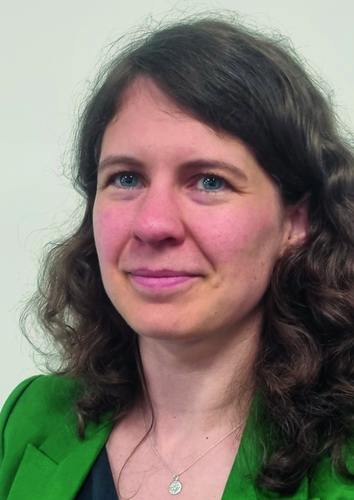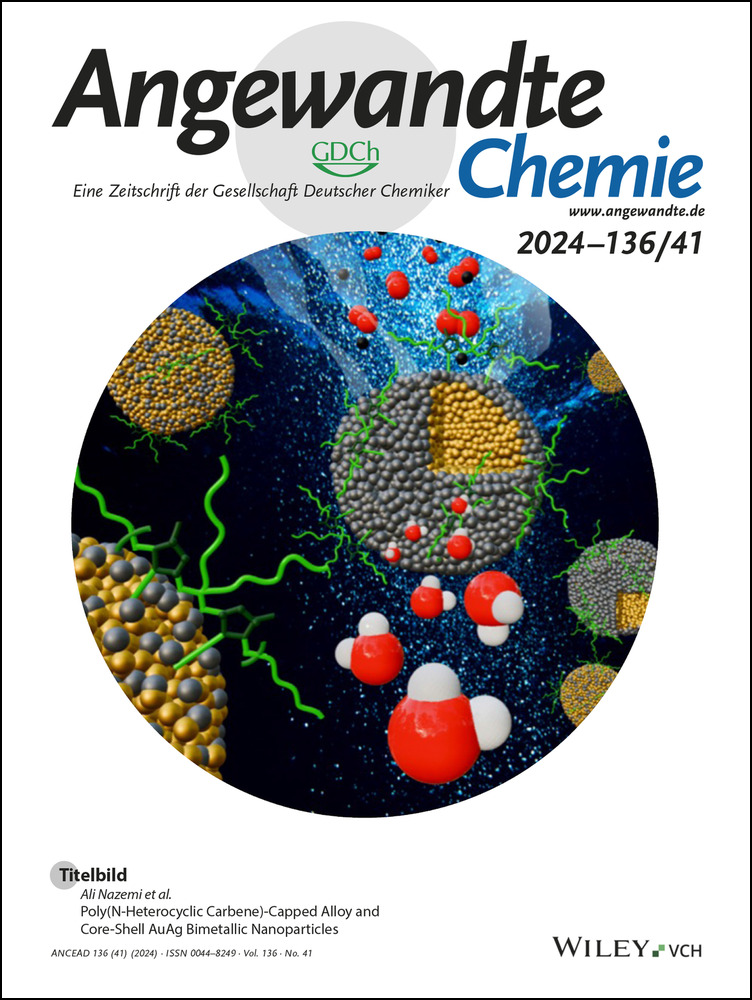Miriam L. O'Duill
Graphical Abstract
“If I could have dinner with a historic scientist, I would invite Lise Meitner and we would discuss her work and how much things have changed for women scientists since her time… A turning point in my career was when I stopped working every free hour of the day and consciously prioritized my work-life balance…” Find out more about Miriam L. O'Duill in her Introducing… Profile.
Miriam L. O'Duill
The author presented on this page has published her first article as a submitting corresponding author in Angewandte Chemie:
“2,2-Difluoroethylation of Heteroatom Nucleophiles via a Hypervalent Iodine Strategy”: S. Das, C. McIvor, A. Greener,C. Suwita, S. P. Argent, M. L. O'Duill, Angew. Chem. Int. Ed. 2024, 63, e202410954.
-
Position, Location:
-
Assistant Professor, University of Nottingham (UK)
-
Homepage:
-
-
ORCID:
-
-
Education:
-
2011 MChem Chemistry, University of Oxford (UK)
2016 DPhil, University of Oxford (UK), Prof. Veronique Gouverneur FRS
2016–2017 DAAD postdoctoral fellow, The Scripps Research Institute, La Jolla CA (USA), Prof. Keary Engle
-
Research:
-
Synthetic organic chemistry, methodology, hypervalent iodine, transition metal catalysis, isotopic labelling
-
Hobbies:
-
Hiking, camping, art
The greatest scientific advance of the next decade will be efficient energy storage for the green energy transition.
If I could go back in time and do any experiment, it would be Darwin's weed plot experiment.
The biggest challenge facing scientists today is sustainability. Science is instrumental to addressing society's biggest challenges in climate change, resource management and healthcare. But solutions need to be sustainable to not further exacerbate the original problems.
Chemistry/science is fun because you never come to a standstill. There are always new things to learn and new challenges to solve.
I chose my current career path because I enjoy the scientific freedom and the diverse role profile that make every day different.
A turning point in my career was when I stopped working every free hour of the day and consciously prioritized my work-life balance.
My favorite element is fluorine.
I advise my students that the difficult questions are the ones worth asking.
My group has fun by going on hikes in the beautiful Peak District.
My favorite thing about my lab group is their diverse approaches to problem solving, and the supportive environment they create.
The best advice I have ever been given is: “Ever failed? No matter. Try again. Fail again. Fail better.”
A good day at work starts with a cup of tea.
My most important role models are the many (often unexpected) mentors I have had along the way, who have supported me unwaveringly and without ulterior motive.
If I could have dinner with a historic scientist, I would invite Lise Meitner and we would discuss her work and how much things have changed for women scientists since her time.
My favorite place on earth is Bavaria.
Behind the Science
Hypervalent iodine(III) reagents have become indispensable tools in total synthesis, late-stage functionalisation and radiolabelling, often allowing access to chemical motifs that are difficult to synthesise using traditional approaches. However, “simple” alkylation is still underrepresented, due to the instability of the corresponding alkyliodonium compounds. The overarching aim of our research group is the rational design and synthesis of such unstabilised alkyliodonium reagents, and our recent Angewandte paper represents a small step in this direction. Developing reaction conditions that favoured nucleophilic substitution over competing elimination was a big challenge, but we were able to succeed thanks to the team's resilience and enthusiasm.





